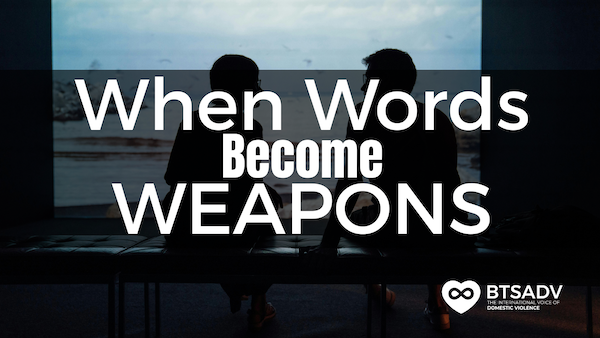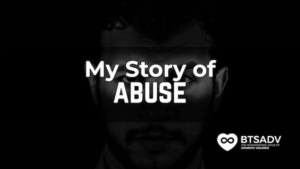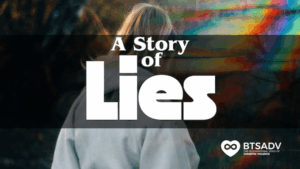By Kelly Sutton
Words become weapons easier than you think. And I used to think the worst kind of abuse was the kind that left bruises.
Then I learned that the words that follow, the ones that cut into your spirit, can linger far longer than any physical wound. The words become weapons of their own.
He hurt me in more ways than one. There were moments when fear lived in my body, but what lasted were the words… the constant belittling, the twisting of truth, the way he made me question my reality.
The Bruises Fade
The bruises faded, but his voice stayed in my head, repeating all the ways he said I was not enough. When I first met him, his words made me feel seen. They were warm, witty and flattering. He told me I was brilliant, beautiful and special, that I understood him like no one else ever had.
After leaving a marriage where I often felt invisible, that kind of attention felt like oxygen. Over time, that same voice, the one that once built me up, started tearing me apart.
At first, the shifts were subtle. Compliments turned to corrections, jokes became jabs, and conversations began to feel like cross-examinations. I never knew which version of him I would get, the charming one who made everyone laugh or the man who would whisper venom through a smile.
“You’re overreacting.” “You’re too sensitive.” “Everyone thinks you’re crazy.”
“Those phrases became the soundtrack of my life.”
He called me every curse word and every demeaning name imaginable until I became numb to it.
They were his way of controlling the story and controlling me.
Every insult, every twisted half-truth, every time he made me doubt what I knew to be real, it chipped away at my identity. I started apologizing for things that weren’t my fault. I stopped trusting my instincts. I became quiet, careful, small.
That is what verbal abuse does. It rewrites you from the inside out.
Words Become Weapons Behind Closed Doors
The outside world saw a happy relationship, but behind closed doors, I was shrinking. The woman who once led with confidence and creativity could barely recognize herself. I remember standing in front of a mirror, trying to fix my makeup after he mocked me for crying and thinking, when did I stop belonging to myself?
Leaving didn’t happen all at once. It rarely does. Verbal abuse creates an invisible leash of guilt and self doubt. I left emotionally long before I packed a single bag. When I finally walked away, I had to rebuild not just my life but my inner voice, the one that told me I was worthy, strong, and still here.
Healing began the moment I started telling the truth, first in therapy, then through my writing, and eventually in conversations with other survivors. When I began sharing my story, people reached out and said, “That’s what happened to me too.” That was when I realized I wasn’t alone, and neither were they.
Now, when I connect with other survivors through Break the Silence Against Domestic Violence, I see how often verbal abuse is dismissed or minimized. But the truth is, words can destroy someone’s self-worth just as powerfully as physical violence. They can make you question your memories, your sanity, even your right to exist peacefully.
Here is what I have learned.
‘The same way words can wound, they can also heal.’
If you are reading this and their words still echo in your head, I want you to know you are not crazy. You are not too sensitive. You are not hard to love. You are someone who deserves gentleness, respect, and peace.
Abuse does not always leave scars you can see.
Sometimes it leaves silence.
And the most powerful thing you can ever do is break it.
Words become weapons AGAINST your abuser by breaking your silence.
Check These Resources:
- Therapeutic Interventions for Healing From Domestic Violence
- The Hidden Impact of Teen Dating Violence
- Find Support with BTSADV
Support Line
Other Resources and Information:



